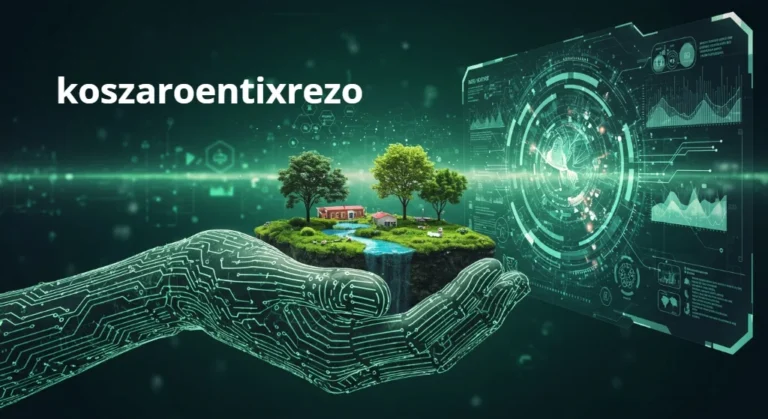
“Gel Ooru” is a term that may seem unfamiliar to many, yet it resonates deeply within certain regional contexts, particularly in South India. The word is composed of two parts: “Gel” and “Ooru.” To understand its full meaning, significance, and applications, it is essential to break it down linguistically, explore its cultural roots, and examine how it is used in everyday speech and community identity.
Table of Contents
ToggleUnderstanding the Term
In the Kannada and Tamil languages, the word “Ooru” translates to “town,” “village,” or “native place.” It carries emotional weight in South Indian culture, where people have a deep connection with their ancestral villages or birthplaces. The term evokes nostalgia, belonging, and pride.
The first part, “Gel”, is trickier. It can be traced back to Kannada, where the verb “gellu” means “to win” or “to conquer.” When conjugated appropriately in different dialects, “gel” can function as a root denoting victory or success. Hence, when combined, “Gel Ooru” can be roughly translated to “victorious town” or “winning village.”
Cultural Significance
In rural and semi-urban parts of Karnataka and Tamil Nadu, it is common to find villages or towns given honorific nicknames based on their accomplishments. A town that produces many successful students, athletes, soldiers, or artists might earn the label “Gel Ooru.” This isn’t necessarily a formal designation but more of a prideful badge worn by the residents. They refer to their hometown as “Gel Ooru” to emphasize its achievements in comparison to neighboring areas.
This concept goes beyond simple boasting—it reflects a form of cultural cohesion and community morale. It creates a narrative where the people of the town view themselves as part of a legacy of success. In festivals, local celebrations, and inter-village competitions, the name “Gel Ooru” might be chanted or displayed on banners to assert pride.
Linguistic Flexibility
Like many Indian regional terms, “Gel Ooru” has fluid usage depending on context. It may be used:
-
Proudly: “Namma ooru Gel Ooru anta helthare!” (They say our village is a winning place!)
-
Playfully or Sarcastically: Sometimes if a village loses a competition or underperforms, locals may use the term ironically to question their own performance.
-
Motivationally: Community leaders or teachers might invoke the title to inspire young people. “Nimma Gel Ooru ge gellabeku” (You must win for your victorious village).
This versatility makes it more than just a label—it becomes part of the storytelling fabric of local life.
In Sports and Competitions
One of the most visible applications of “Gel Ooru” is during Kabbadi, cricket, volleyball, or track and field events in rural Karnataka or Tamil Nadu. Each village sends its team, and the rivalries are fierce. Victories are celebrated with fireworks, processions, and public feasts. A village that wins multiple tournaments over the years earns respect and may colloquially be dubbed “Gel Ooru” by fans and commentators alike.
When this title is earned through consistent effort, it can even make its way into banners, social media tags, and local journalism. For instance, a small town whose girls’ volleyball team consistently brings home trophies may receive such a title unofficially in the region.
Influence on Identity
“Gel Ooru” can influence how people view themselves and their roots. For South Indians who migrate to cities like Bengaluru, Chennai, or even abroad, there’s a longing for connection with their hometown. When people say they’re from “Gel Ooru,” it can have a ripple effect, boosting their own personal confidence and shaping how others perceive their background.
In WhatsApp statuses, Instagram bios, and YouTube vlogs, you’ll often see young people highlighting their origin by proudly stating they are from a “Gel Ooru.” This reveals how much identity is shaped not just by geography, but by a shared sense of pride and achievement.
Beyond the Literal Meaning
Interestingly, “Gel Ooru” doesn’t always mean that a village has an actual track record of victories. Sometimes, it’s aspirational. People use the term to project confidence, inspire youth, or even rebrand a village’s image. In areas struggling with poverty, drought, or underdevelopment, invoking the term “Gel Ooru” can be an act of resilience—a way of saying, “We may not be winning now, but we believe we can.”
In this way, “Gel Ooru” can also be viewed as a manifestation of hope, similar to slogans like “Incredible India” or “Swachh Bharat.” It’s a narrative device to rally collective ambition and community effort.
Examples from Popular Culture
Local cinema and television occasionally use fictional places called “Gel Ooru” as settings. These places often house underdog heroes, social reformers, or feisty characters that embody the spirit of defiance and success against odds. The name becomes symbolic of everything noble, brave, and triumphant about rural life.
Similarly, local politicians or activists may invoke “Gel Ooru” in their speeches to spark regional pride, especially during elections or campaigns.
Comparison to Similar Concepts
Many cultures have similar ideas to “Gel Ooru.” For instance:
-
In Japan, the concept of “Furusato” (hometown) also carries emotional and cultural resonance.
-
In the U.S., high schools or towns may refer to themselves as “Championsville” or “Title Town” when known for athletic achievements.
-
In Africa, villages are often identified by the success of their warriors, athletes, or scholars.
In essence, “Gel Ooru” is part of a global phenomenon where communities build identity around excellence and shared victory.
Conclusion
“Gel Ooru” is more than just a phrase; it is a powerful cultural emblem. Whether it is applied seriously or in jest, its significance cannot be overstated. It reflects the aspirations, pride, and identity of a community. It shows how language and culture intertwine to create meaning beyond literal definitions.
From sports fields to school competitions, from political speeches to social media captions, “Gel Ooru” continues to echo across South Indian villages and towns, inspiring generations to strive for excellence and honor the place they call home.
About the Author
admin
Administrator
Welcome to our guest post platform — your destination for insightful, high-quality content from contributors around the world. I'm Qasim Malik, the admin behind this initiative, committed to building a diverse space where voices from various industries, interests, and backgrounds come together. Our mission is simple: to empower writers, bloggers, and thought leaders by giving them a platform to share their expertise, opinions, and stories. Whether you're a seasoned expert or a passionate beginner, our site welcomes you to publish and connect with a wider audience.






